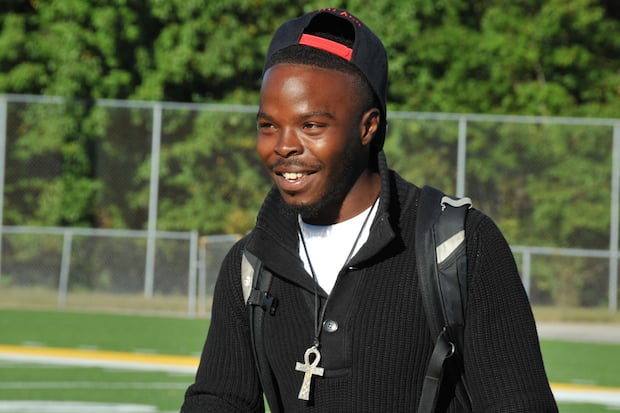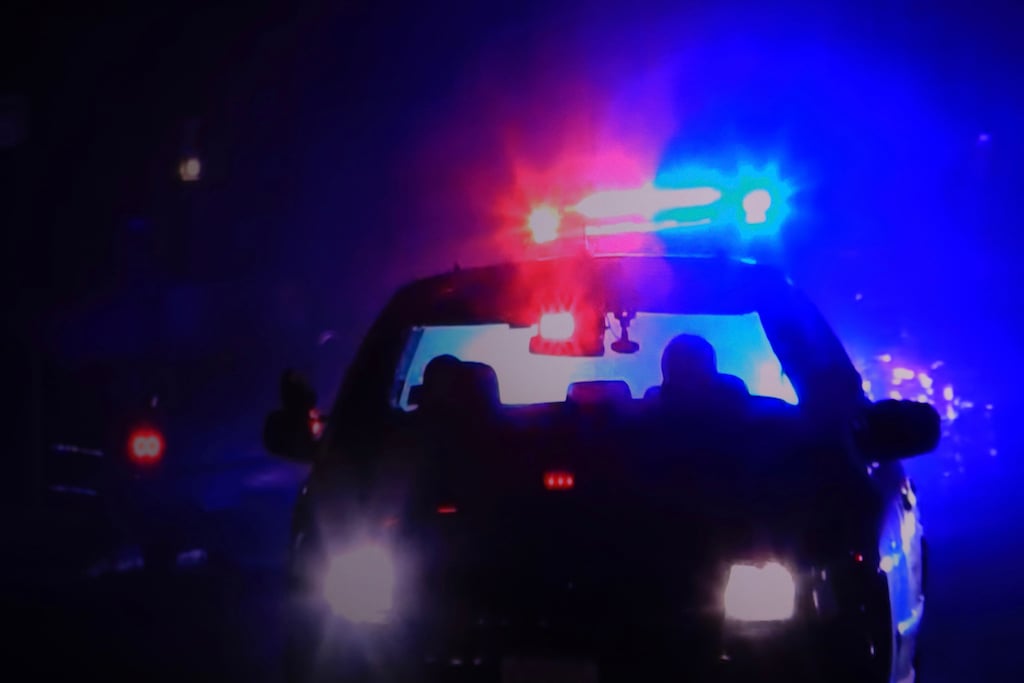When you sleep on the street, you never fully sleep. If you can make it until around 4 AM, you know you’re okay…at least for that one night. Once the sun begins to rise, your body naturally does the same, and you are back to your daily grind…until the next night.
Even if your eyes are closed, you train your ears to always stay awake and alert. So even now, in my comfortable dormitory bed, I never fully sleep. It’s become second nature for me to always be alert.
My first life goal was to earn a high school diploma. I accomplished that and, at 18, I was working to realize an even greater aspiration: to become a college graduate. I was into my first year at Delaware State University when things began to spiral out of my control. I have dealt with financial and health difficulties my entire life—I’ve been diagnosed with a heart condition as well as hypertension, asthma, and glaucoma. When my health began to decline and tuition at Delaware State increased, I had to leave school.
When I left DC for school, I was a child. But when I returned, I was considered to be an adult, so I needed to pull my weight as one. I had no clear direction; I could not find employment, so I knew what was next.
I found myself going from house to house, couch to couch. I stayed with my mother here and there, but we never got along and because I was unemployed and over 18, it was clear that I was a burden. In between staying with my mother and sometimes other family members, I realized I didn’t have anywhere else to go. There were plenty of nights when I slept outside, even during the winter. I remember being tired of trying to find ways to survive; I just remembered being really tired. Tired of the cold. Tired of managing all of these issues by myself. Tired of wearing a mask that I was a normal “teenager.” This was not normal.
I reached out to my college advisor Mr. E., from Friendship Public Charter School. He had recently participated in a Sleep Out at Covenant House Washington that encourages business professionals to sleep out for one night to raise awareness about youth homelessness. He referred me to Covenant House, and I called to explain my situation. I felt that they were my last hope. I was referred to the crisis center—an emergency shelter for youth—and I was given a stable place to stay immediately.
I no longer had to worry about where I was going to sleep, but I still had to deal with health and financial instabilities, and for the first two or three weeks, my caseworker could not get me to talk. She would ask me questions and I would meet her with silence. In retrospect, I realize that I was reluctant because, as I understood it, what I said and how I felt didn’t really matter to anyone. Nothing that I said was going to change my situation, so in my mind, sharing my thoughts served no real purpose. When I spoke, people didn’t really listen anyhow.
My caseworker was patient with me. She told me one day that my story was “worth hearing,” and that meant a lot to me. As a resident in the crisis center, I worked with my mentor and the staff at Covenant House Washington to get back on my feet. I was involved with all kinds of community service and volunteer efforts. As a volunteer at Friendship High School, where I graduated, I met a gentleman who was interested in hearing what I had to say. I told him my story and he offered me a job at Friendship Public Charter School in the corporate office. Things started to look up. I guess my caseworker was right. My story was worth hearing. Now that I had a stable environment, I was also ready to receive the moral support that I previously lacked. For the first time I didn’t feel like a burden.
I still keep in contact with a few of the workers from Covenant House Washington. Ms. Freeman from the Crisis Center reaches out and calls every now and then to check up on me. Ms. Alexis and Ms. Keller are important to me as well, always making sure I am okay. Ms. Keller even brought a care package to my dorm.
This experience of being without has made me very sensitive to others who have the same struggle. So when I encounter friends in similar situations, I always encourage them to at least consider Covenant House because I know how much they’ve helped me. As long as you are willing to try, the staff there is willing to help. They help you find your way, create a plan, and reach your goals. Most of all, they respect you and let you know that you count and you have a bright future.
My future is bright. I am currently a student at Bowie State University majoring in Biomedical Engineering. My relationship with my mom has gotten better over time. We have both grown. We understand each other a little better now. I am still working towards my goal of becoming a college graduate and then a biomedical engineer. I guess the rest of my story is to be continued…and I am okay with that.
Not long ago, Donte Davis was homeless youth in the District. He now lives in Bowie and writes to bring attention to National Homelessness Awareness Month, which takes place each November.










